The Cost of Deforestation at the Supermarket
As we go about our day-to-day activities, not much thought is given on the impact of deforestation on scarcity and high costs of fresh produce at the supermarket. But certainly, we all feel the pinch when we visit the grocery store to purchase farm fresh products these days. Well, the experts lay the blame, in part, on climate change. When lush, virgin, forest is cleared for agricultural purposes the carbon they store is released as carbon dioxide that contributes to climate change. We have all seen the effects of climate change, from long periods of drought to unprecedented rainfalls. Now clearly, a small country like Belize is not making any significant contributions to global emissions, but experts would agree that deforestation is not doing any good. So, what value does the forest contribute to the agricultural sector? News Five’s Paul Lopez tell us more in tonight’s installment of Belize on Reel.
Paul Lopez, Reporting
Data from the University of Maryland’s Global Land Analysis and Discovery show that Belize lost one thousand, one hundred and seventy square miles of forest cover between 2001 and 2023. That is six hundred and forty thousand acres of virgin forest.

Clifford Martinez
Clifford Martinez, Climate Change Coordinator, Ministry of Agriculture
“Studies have shown, and indications have shown that the damaging sector has been with activities related to land clearing for agricultural production. So it is land use change for agricultural produce.”
Clifford Martinez is the Climate Change Coordinator at the Ministry of Agriculture. Research shows that when trees are cut down, the carbon they store is released into the atmosphere. These large land clearings are often undertaken for agricultural purposes. The agro-productive sector contributes just under twenty percent of the nation’s GDP.
 Clifford Martinez
Clifford Martinez
“And also where the sector itself represents a large portion of foreign investment earnings. As well as the population of individuals involved in the sector who benefit directly or indirectly and more importantly the percentage of the working force, the labor force, in and around thirty percent of the labor force are from the agriculture sector.”
Ironically, the effects of climate change, including unpredictable weather patterns and increasingly severe weather events, threaten the economic livelihood of persons working in the agricultural sector. Ever Blandon is a vegetable farmer and the secretary of the Valley of Peace Lagoon Farmers’ Cooperative, a group of rural small farmers.
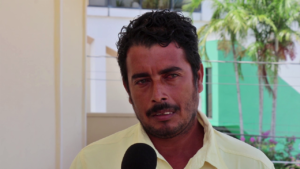
Ever Blandon
Ever Blandon, Secretary, Valley of Peace Lagoon Farmers’ Cooperative
“With climate change it is very difficult to know when it will come, when you will have it. For example, two days ago in the night we had as much water that we get in a whole month, so that will put you in some kind issue with the vegetable. Cabbage, it cannot be more than two hours under water, and it gets spoiled.”
That then leads to a trickledown effect at the market and in grocery stores.
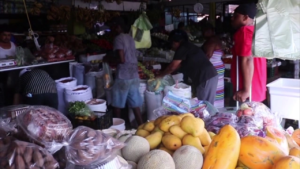 Ever Blandon
Ever Blandon
“That eventually will be a lose to the farmer and the market. Last year there was flooding and the cabbage was ready to harvest and some farmers cut it under water. And when they took it to the market it was spoiled. So, it is something that is a lose on all points. For the farmer and the consumer. Eventually you will have a high price on the market.”
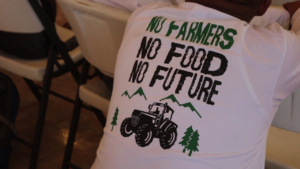 Clifford Martinez
Clifford Martinez
“We are in the north so the more common one is the drought that has affected us for the past three years, the sugar industry. We are still recovering from citrus greening in the south.”
Connecting the dots from deforestation to the high cost of fresh produce at the supermarket may not be as challenging when the effects of climate change are considered. So, what can be done to reduce these negative impacts from a policy standpoint? We asked the Minister of Sustainable Development, Orlando Habet.
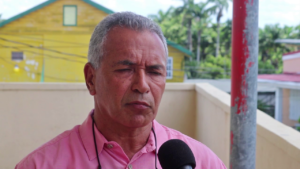
Orlando Habet
Orlando Habet, Minister of Sustainable Development
“I think one is land degradation. It is absolutely important for the agriculture ministry and the department and us in the sustainable ministry to do agriculture in a sustainable way. Gone are the days when we just got bulldozers to clear down land to do agriculture. Also, looking at the land use policy which is now under way. Now looking at that land use policy, which land is appropriate for agriculture, which land is appropriate for land development in terms of urbanization. We see right now areas where especially in the south, going down the Hummingbird, when I was younger I use to go down very slow, because you want to see the beautiful scenery and two because their road was curvy, so you have to be careful. But we saw agriculture happening in the valley, but now we see agriculture happening on the mountain side.”
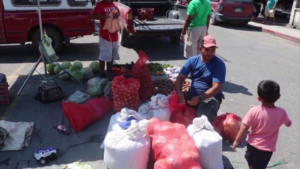 The future of Belize’s agricultural sector is at stake. But, sixteen-year-old rural farmer Jahzir Sanchez remains optimistic. This week, he participated in a climate change and agriculture forum organized by the Climate Change Office within the Ministry of Sustainable Development.
The future of Belize’s agricultural sector is at stake. But, sixteen-year-old rural farmer Jahzir Sanchez remains optimistic. This week, he participated in a climate change and agriculture forum organized by the Climate Change Office within the Ministry of Sustainable Development.

Jahzir Sanchez
Jahzir Sanchez, Youth Farmer
“Me as a farmer, my grandfather before he died, he left us land right there. The forest we leave it like that. We don’t touch the forest. The forest is for sticks. We use it when we need to build corrals for the cows. We leave that, if necessary, we cut down. If not, it is necessary we don’t cut down. We have enough land to plant. We have the backyard. We have the field in front of the house. All these lands can be used, not only for football.”
Reporting for News Five, I am Paul Lopez.







Facebook Comments